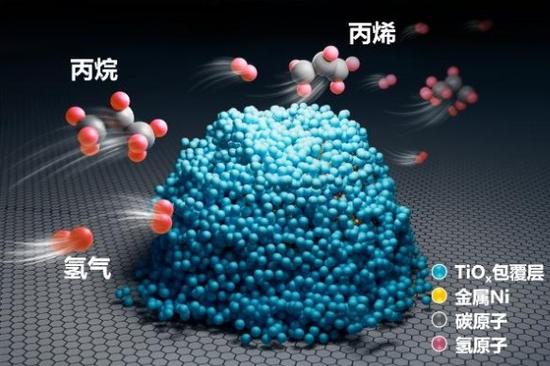Tianjin team develops greener propylene catalyst
Scientists from Tianjin University have developed a cheap, environmentally friendly catalyst for propylene — a raw material in plastics, fibers and pharmaceuticals — that could halve production costs.
The breakthrough, published on Friday in the journal Science, was led by the university's vice-president, Gong Jinlong.
"The new catalyst demonstrates exceptional propylene selectivity and stability," said Chen Sai, the first co-author of the study, from the university's School of Chemical Engineering and Technology.
"It outperforms its international counterparts and can reduce costs by 30 to 50 percent while ensuring nontoxic production and low-energy consumption during catalyst preparation and use."
The breakthrough had utilized two widely available resources: titanium and nickel.
"Titanium is abundantly available on earth, with China being one of the top resource-rich countries," Chen said. "Nickel is also plentiful globally."
China produced more than 60 million metric tons of propylene last year — roughly a third of global output — that was worth more than 600 billion yuan ($82.5 billion).
Among various propylene production technologies, propane dehydrogenation, or PDH, is widely preferred because of its high economic efficiency and reduced dependence on petroleum.
However, traditional PDH catalysts rely heavily on expensive platinum or toxic chromium oxide, making the process costly and environmentally harmful, the university said.
The quest for a cheaper, greener and more efficient next-generation propylene catalyst has been a global focus in chemical research.
The Energy and Catalysis Adventure Team at Tianjin University proposed using inexpensive and environmentally friendly oxides to interact electronically with metals and enhance the catalytic process, and subsequently developed a titanium oxide-nickel composite catalyst.

